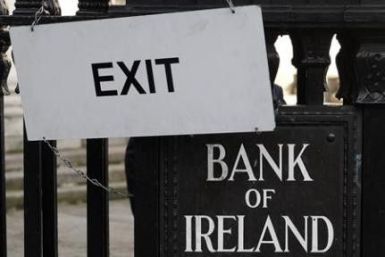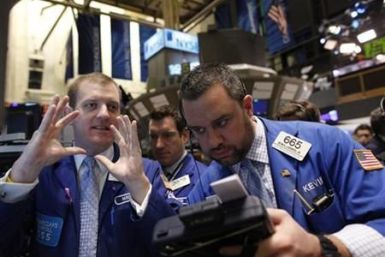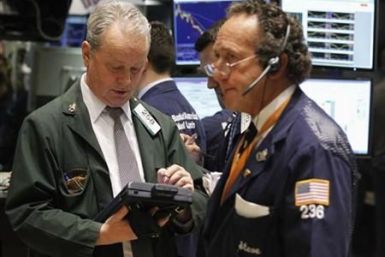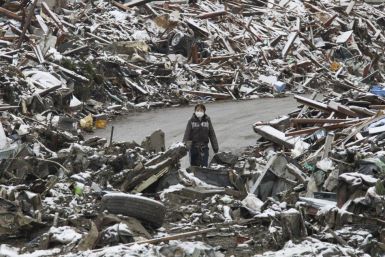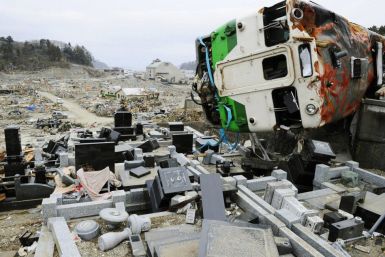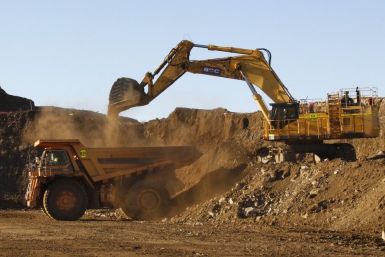Seems you can't keep a safe haven down. Not when retained wealth worldwide needs to escape money-printing and zero rates at home. What options are left to anxious savers? What choice but the Euro is still open to the Swiss National Bank...?
I have noticed that the vast majority of people protesting in the streets of these strife-torn countries in the Arab world appear to be well-fed, well-clothed, with many carrying cell phones, riding on motorbikes, driving cars, etc.
The manufacturing slump in March confirms that Japan's economy contracted for a second successive quarter in the first three months of the year, and will mark outright decline in 2011, an analyst has said.
Standard & Poor's Ratings Services said that it has downgraded its sovereign credit ratings on the Republic of Ireland to 'BBB+/A-2'.
The UK economy contracted less than previously estimated in the fourth quarter last year, as services and manufacturing output was revised higher.
Personal spending in the US rose more than expected in February while income increased less than expected, indicating that the average consumer is growing more confident about the economic recovery.
US stocks are up on Friday, en route to end positive for the third consecutive session, as investors shrug off global concerns.
US stocks rallied on Friday on positive economic data and another good earnings report from the technology sector.
Futures on major U.S. stock indices continued to point to a higher opening on Friday after government data showed that US economic activity grew at a 3.1 percent annual rate in the fourth quarter.
The triple disaster in Japan and the ongoing turmoil in the Middle East and North Africa likely would have only a limited impact on the global economy - provided the twin shocks of higher oil prices and the supply chain disruptions from Japan do not get much worse, market research firm IHS said.
At least four US airlines have reduced their capacity plans for 2011 largely due to the high oil price.
Japan, which is grappling with the impact of March 11 earthquake and the resultant tsunami, may be pushed towards a recession, an expert told IBTimes.
With the staging of the world's most important watch and jewelry show, Baselworld, in Switzerland starting today, many horology enthusiasts and analysts speculate a somber mood during the event, eliciting fears of declining sales for the Swiss watch industry.
The UK budget, which was unveiled on Wednesday, has revealed no significant changes to the deficit-reduction plans set out by the coalition Government just after last summer’s election, an analyst has commented.
There is a clear sense of calm returning to the financial markets after the horrific earthquake in Japan and the leveling of the playing field in Libya. Though the damage associated with Japan’s earthquake is clearly immense, its economic impact will mostly be localized.
The Euro price of Gold Bullion today slipped back to last week's finish just below €32,000 per kilo - reversing Monday's 1.0% rise - as the single currency hit new 6-month highs to the Dollar above $1.4240.
The president of Uganda, Yoweri Museveni, has written a lengthy a column in The New Vision newspaper of Uganda in which he condemned the western alliance’s military strikes on Libya. He also proposes a resolution to the Libyan crisis through the auspices of the African Union.
Professor Yuko Aoyama from Clark University Geography Department says the collective spirit in Japan is very high at the moment, in an interview to IBTimes on Japan's earthquake and the resultant tsunami and their impact on the world's third largest economy.
The financial impact to Japan from last week’s earthquake-tsunami could be as high as $235-billion, according to a report issued on Monday by the World Bank.
Gold prices jumped vs. a falling Dollar at the start of Asian trade on Monday, hitting near-two-week highs for US investors as crude oil also leapt following the weekend's joint UN air strikes on Libya.
Though the human tragedy caused by the Japan disaster is incalculable, its economic impact may be less harsh than previously thought. An analyst said on Monday there will be some near-term impact but it will not be sufficient to dent the region’s strong growth prospects this year.
The impact of the devastating earthquake and tsunami in Japan will only have a limited direct economic impact on the eurozone, according to analysts.





